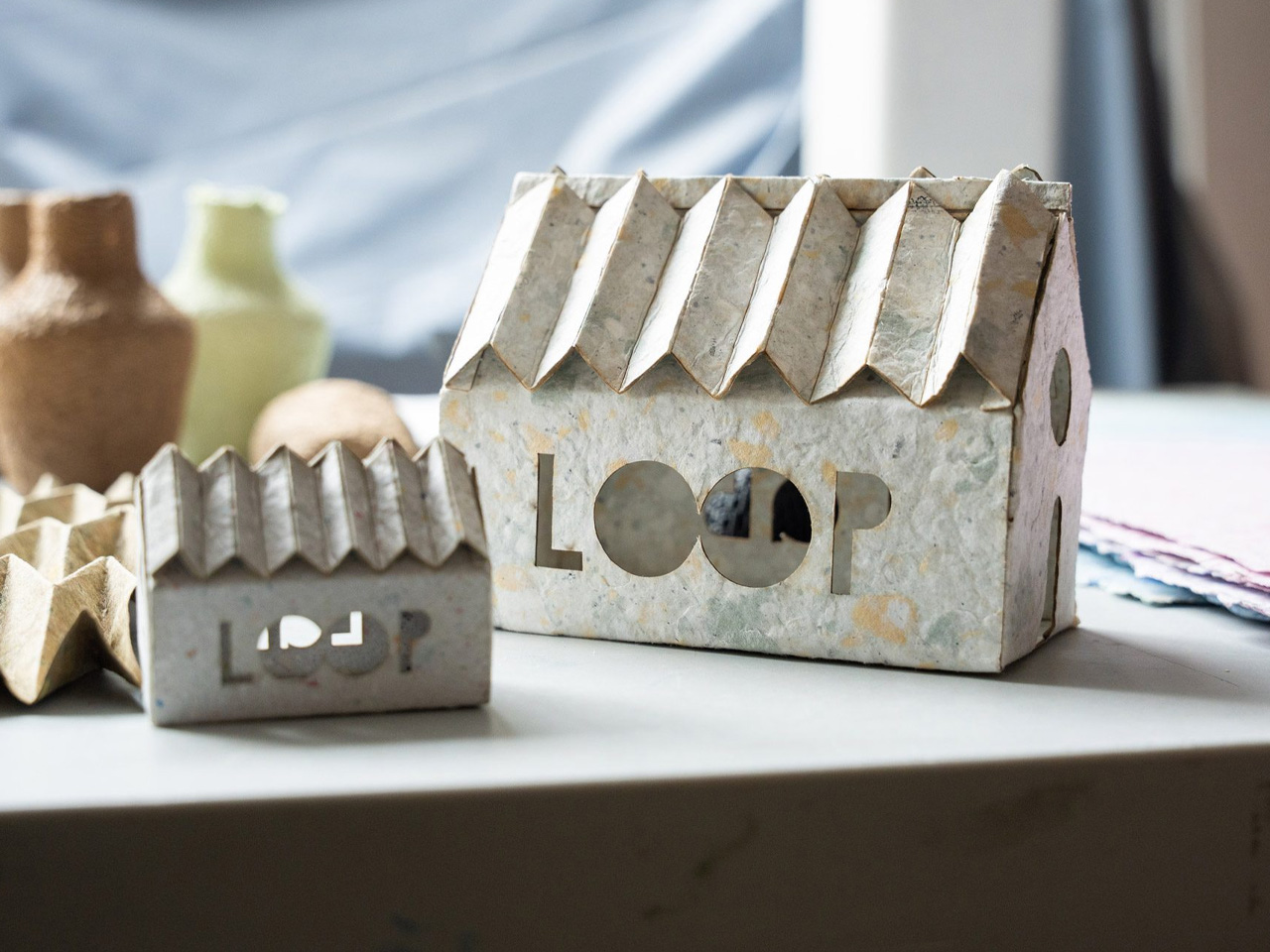
The Rhode Island School of Design has discovered something remarkable hiding in plain sight: their trash bins contain tomorrow’s art supplies. Through the newly launched Loop Lab initiative, what once headed to landfills now becomes raw material for the next generation of designers and artists. The Edna W. Lawrence Nature Lab spearheaded this ambitious pilot project with backing from a substantial $100,000 grant from the Maxwell/Hanrahan Foundation. The concept appears deceptively simple yet revolutionary in practice. Rather than purchasing new materials while simultaneously discarding potentially useful waste, RISD has created a closed-loop system that transforms campus refuse into studio-ready resources.
Walking through the Loop Lab reveals an almost alchemical process. Blotter paper that once absorbed spilled paint finds new life as a substrate for experimental work. Cotton muslin scraps, previously destined for disposal, emerge as carefully prepared materials ready for student projects. The transformation extends beyond mere recycling, representing a fundamental shift in how educational institutions can approach resource management. Students participate directly in this material resurrection, learning firsthand about circularity principles while solving practical design challenges. The hands-on approach ensures that sustainability becomes integral to creative education rather than an abstract concept discussed in theory classes.
Designer: Rhode Island School of Design
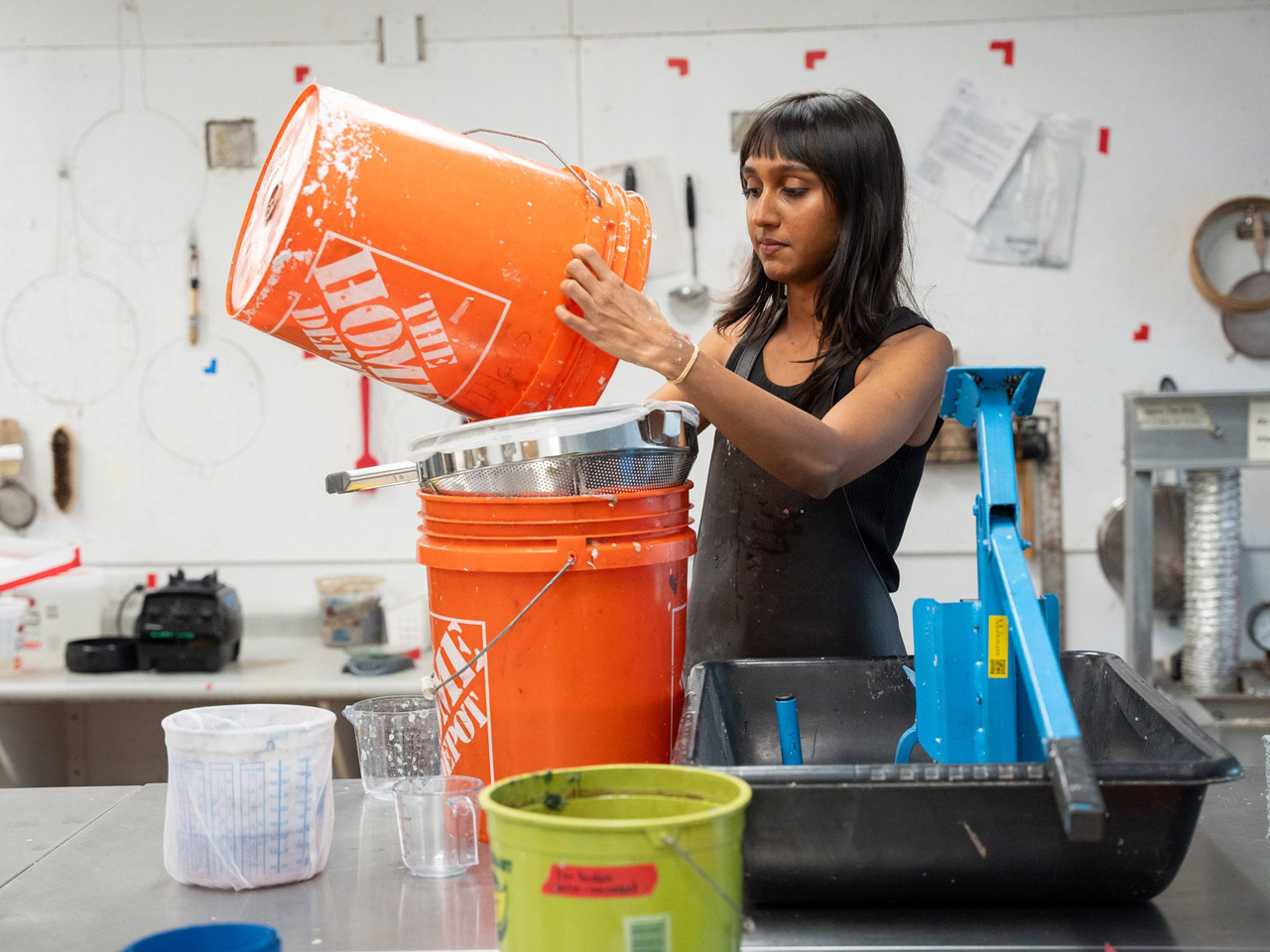

Each transformed material carries embedded stories about waste reduction, resourcefulness, and environmental responsibility. Recent media attention from design publication Dezeen highlights the broader implications of RISD’s approach. The coverage emphasizes how the initiative addresses what project leaders call “the lowest hanging fruit” in institutional sustainability efforts. By focusing on internal waste streams, the school creates immediate impact while developing scalable solutions for other educational institutions. The timing proves particularly significant as design schools worldwide grapple with sustainability mandates and environmental consciousness among students.
Loop Lab offers a practical framework that other institutions can adapt, creating measurable change without requiring massive infrastructure investments or complete curriculum overhauls. Material circularity research forms the theoretical backbone of the project, but practical applications drive daily operations. The lab expands understanding of how discarded matter can inform regenerative design practices, presenting students with materials that carry environmental narratives alongside creative possibilities. Each project becomes an exploration of both aesthetic potential and ecological responsibility.
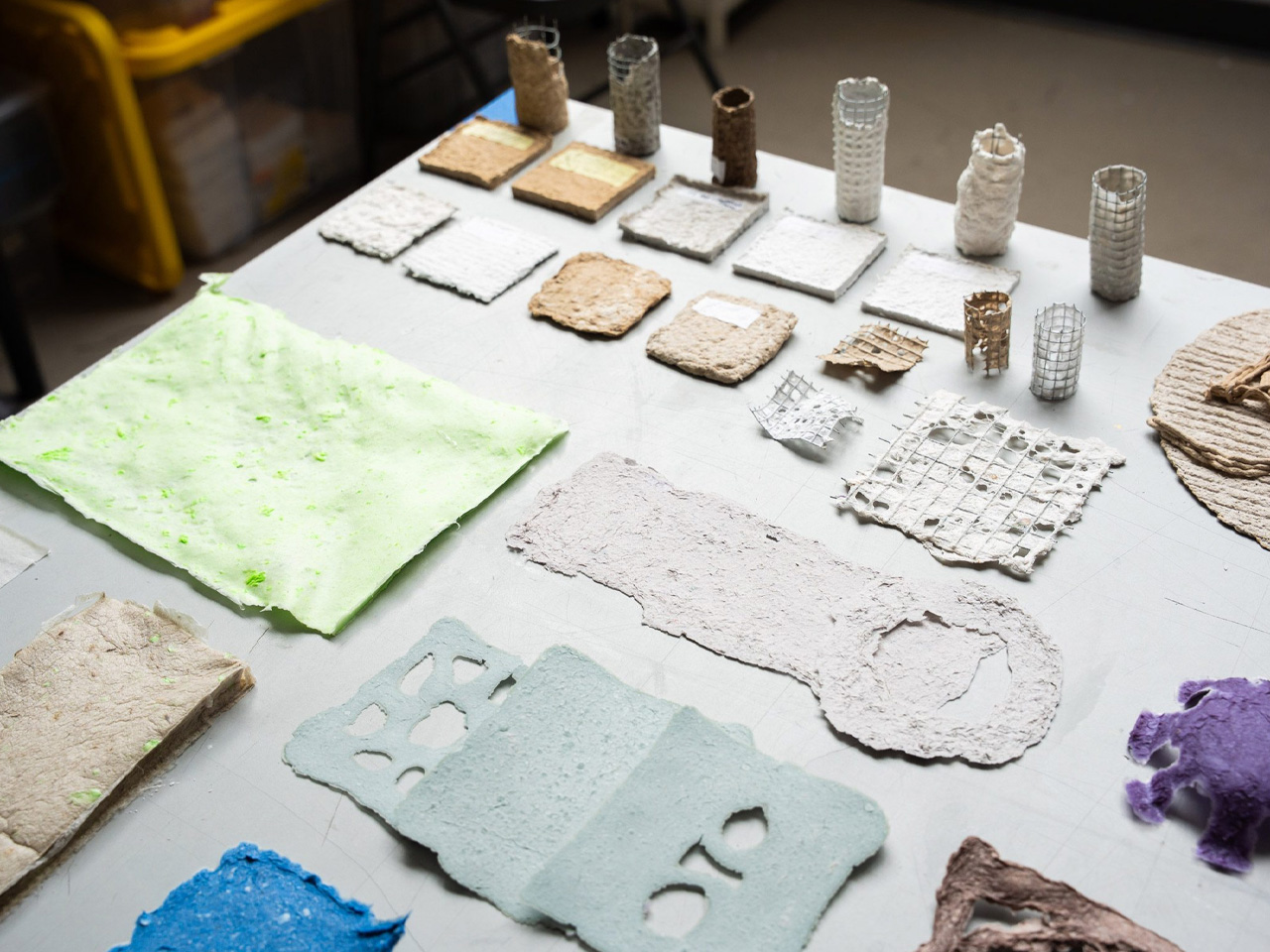
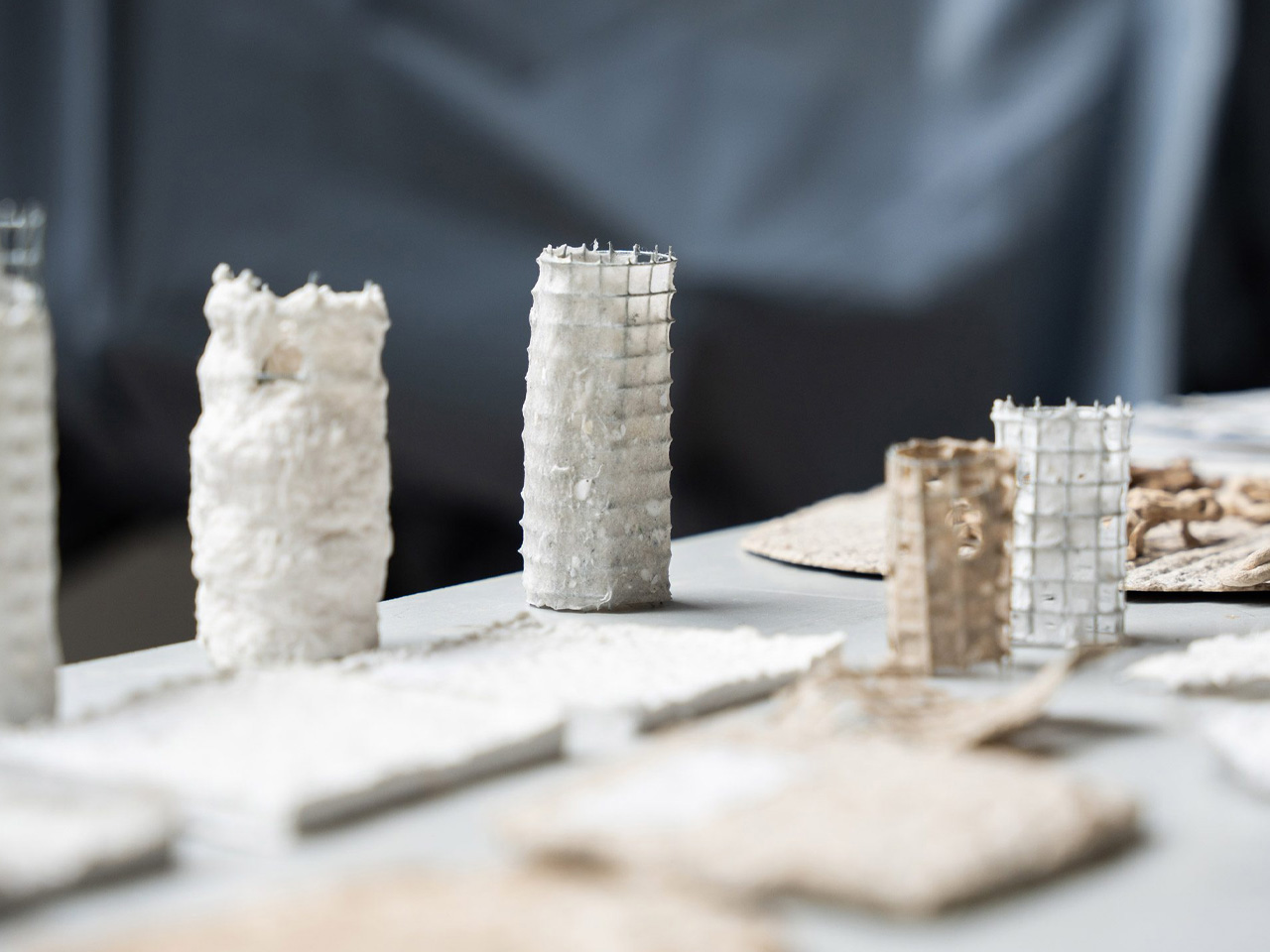
The Nature Lab’s documentation through social media platforms reveals ongoing discoveries and successes. Students share their experiences working with transformed materials, creating a growing archive of circular design practices that extends the project’s influence beyond campus boundaries. Loop Lab represents more than waste reduction or cost savings. The initiative fundamentally questions traditional material sourcing while providing tangible alternatives. Students graduate with direct experience in circular design principles, carrying these approaches into professional practice where sustainable material choices increasingly influence client decisions and project outcomes.
As design education evolves to meet environmental challenges, RISD’s Loop Lab demonstrates how institutions can transform operational necessities into educational opportunities. The pilot project’s success suggests a future where campus waste streams become integral components of creative curricula, turning every scrap into a story worth telling. This innovative approach positions RISD at the forefront of sustainable design education, creating a model that combines environmental stewardship with creative excellence while preparing students for a future where circular design principles define industry standards.
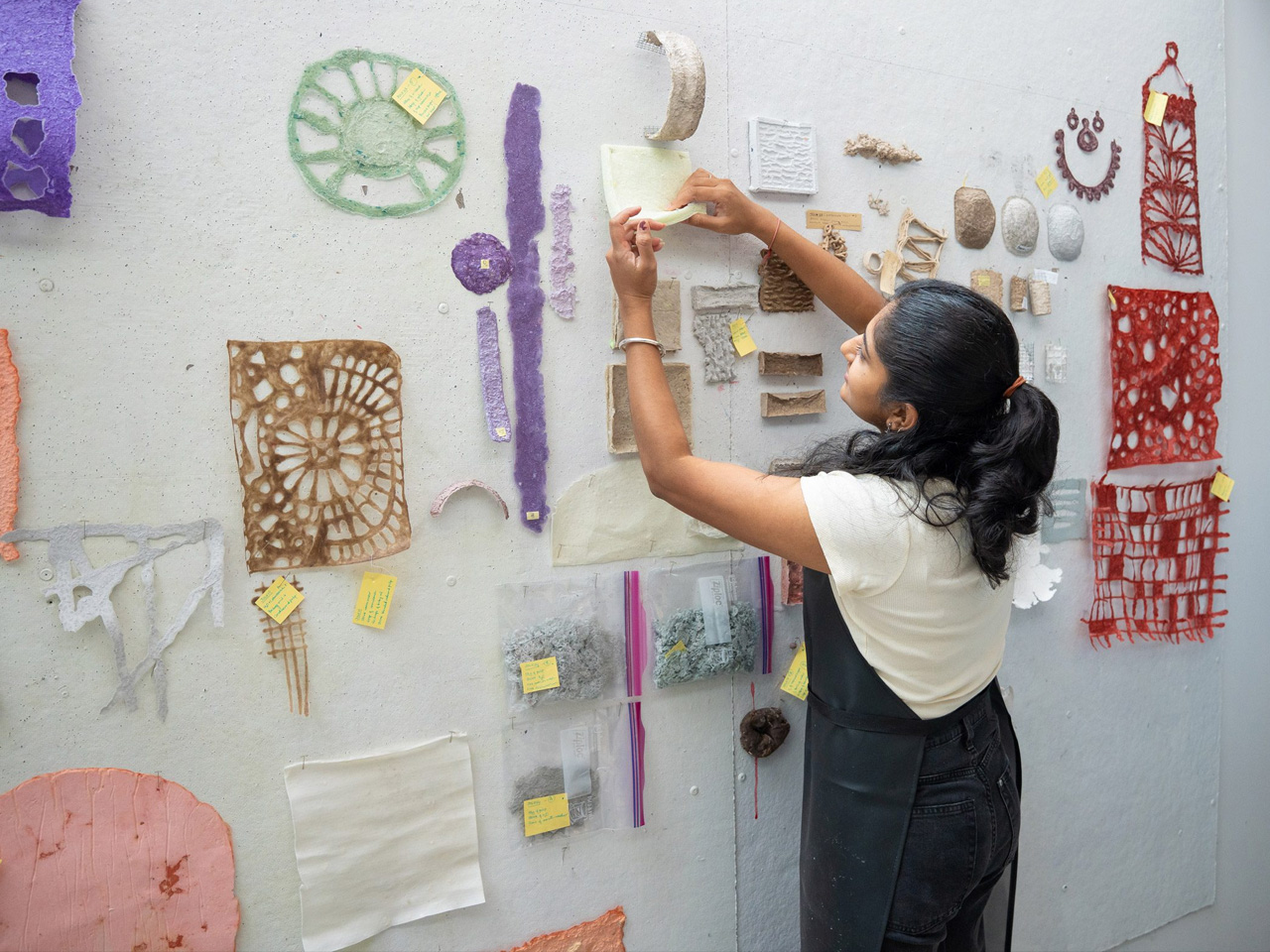
The post RISD’s $100K Loop Lab Creates Art Supplies From Campus Waste first appeared on Yanko Design.